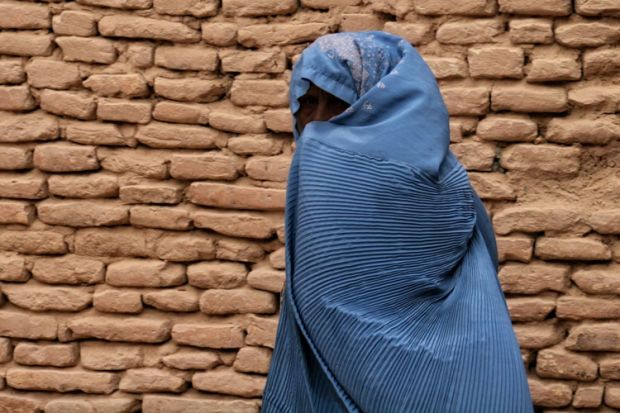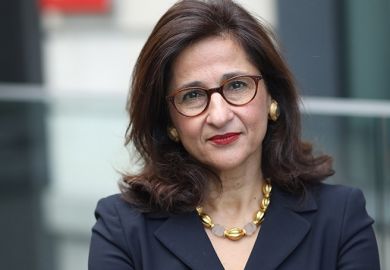Source: Pal Teravagimov/Shutterstock.com
The number of female university students in Afghanistan rose from near zero under the Taliban regime to 15,000 in just 10 years, a conference of South Asian higher education leaders has heard.
The British Council event brought together government ministers and senior civil servants from across higher education in South Asia, as well as UK-based academic experts on higher education and the region, to discuss issues including “new models of private and public sector partnerships” and “access and equality for women”.
The event, held in London at the British Academy on 22 January, was the latest in the British Council’s Global Education Dialogues series.
Michelle Potts, the council’s regional director of education in South Asia, told the event that it was a “momentous point” for the region as it seeks to develop a workforce with the right skills.
On the issue of private provision, several speakers argued that non-state provision was required to address the challenges posed by educating huge populations such as those in India and Pakistan. But Stephen Ball, Karl Mannheim professor of sociology of education at the UCL Institute of Education, pre-empted the concerns of many of the speakers when he said that ensuring quality among private providers was “enormously challenging”.
In the session on women in South Asian higher education, Elham Shaheen, foreign relations director in Afghanistan’s Ministry of Higher Education, highlighted the rapid growth in the number of female students since the Taliban was toppled in the US-led invasion of 2001.
There were differing views on the role of all-women universities in South Asia, with some speakers arguing that such institutions were almost always seen as lower status.
Navtej Purewal, deputy director of the South Asia Institute at Soas, University of London, highlighted cultural factors preventing women from accessing higher education in some areas. Families were sometimes unwilling to invest in higher education for female children because it was seen as “not investing in your own household because she’s getting married”, she said.
Register to continue
Why register?
- Registration is free and only takes a moment
- Once registered, you can read 3 articles a month
- Sign up for our newsletter
Subscribe
Or subscribe for unlimited access to:
- Unlimited access to news, views, insights & reviews
- Digital editions
- Digital access to THE’s university and college rankings analysis
Already registered or a current subscriber? Login





